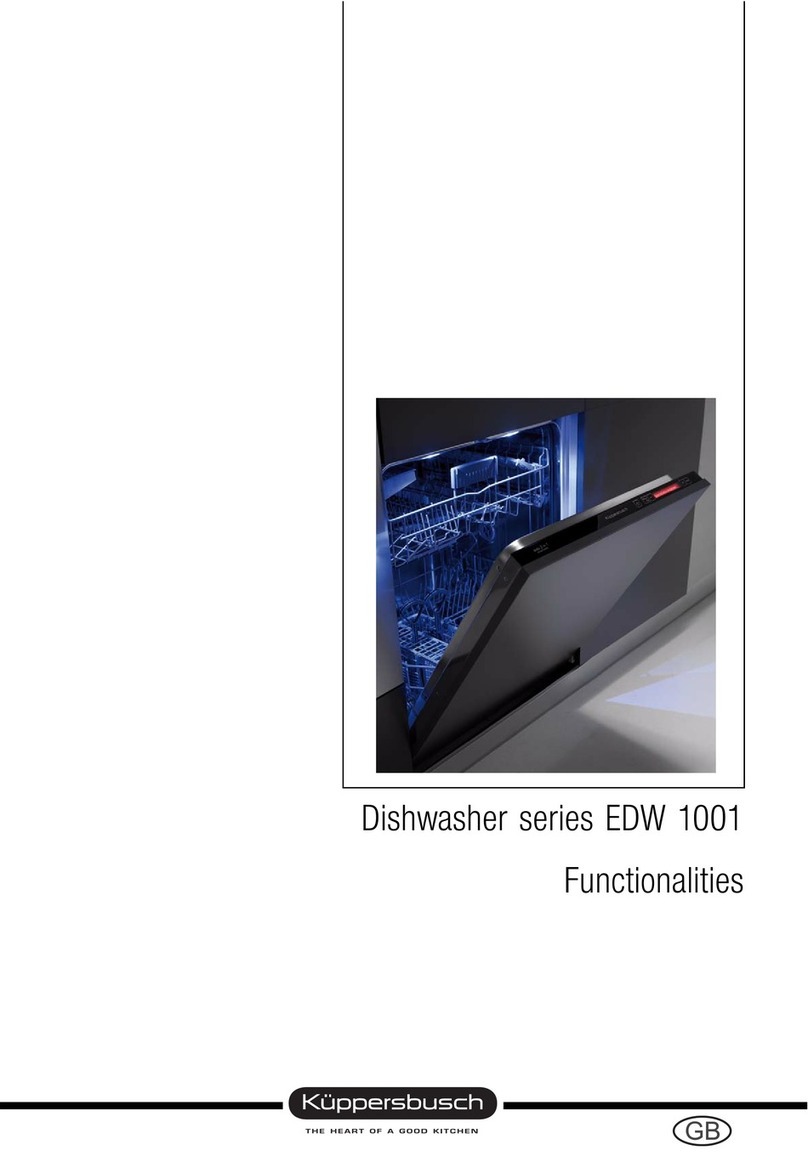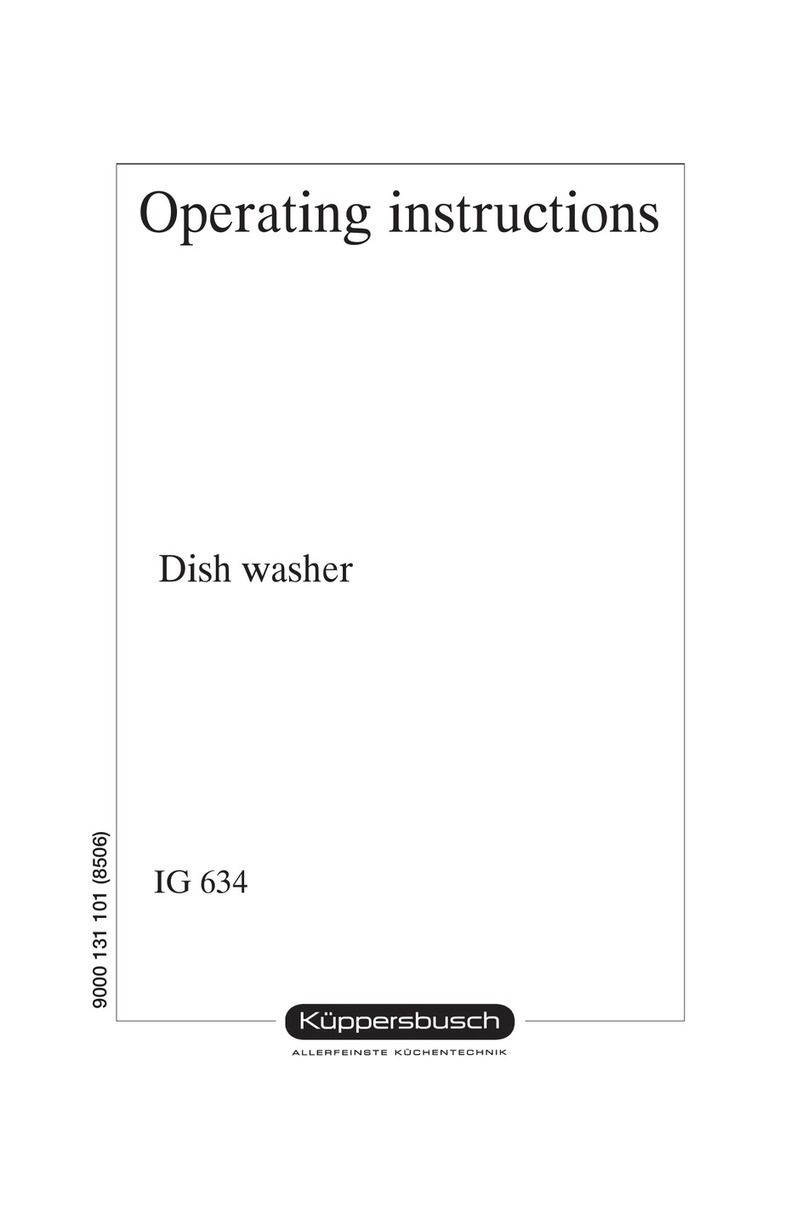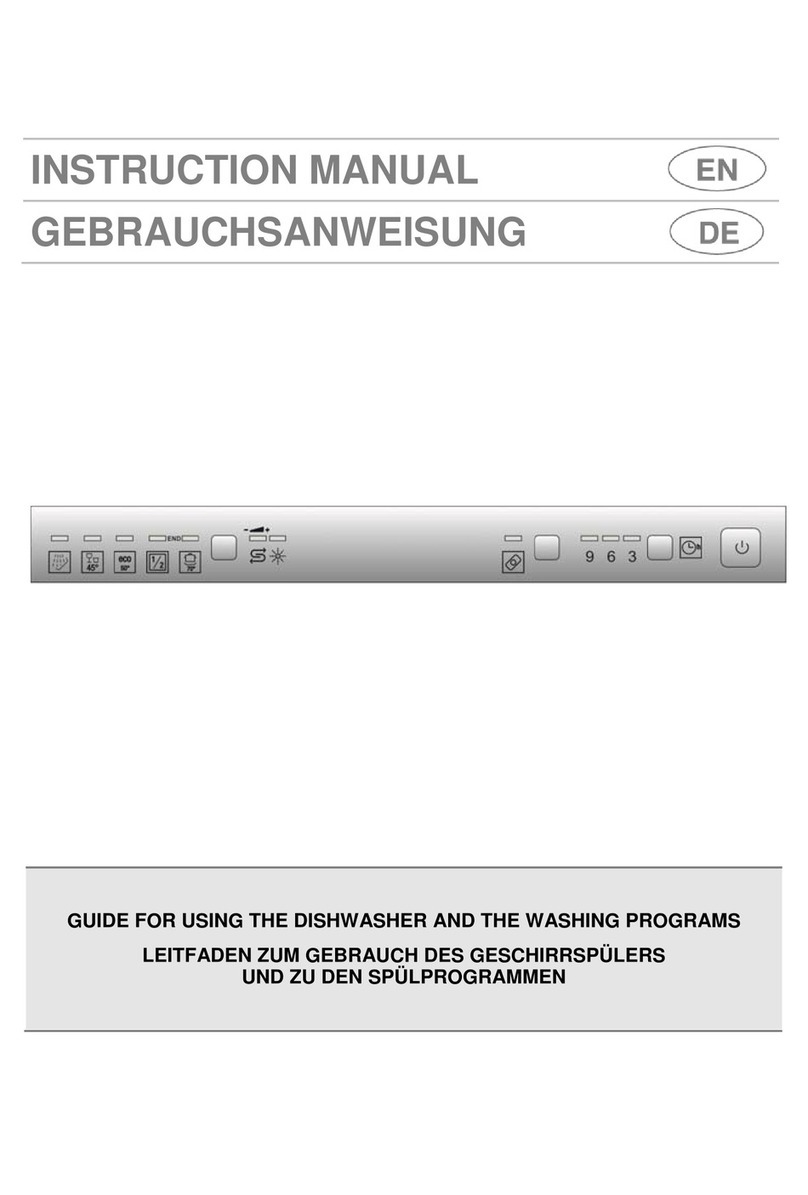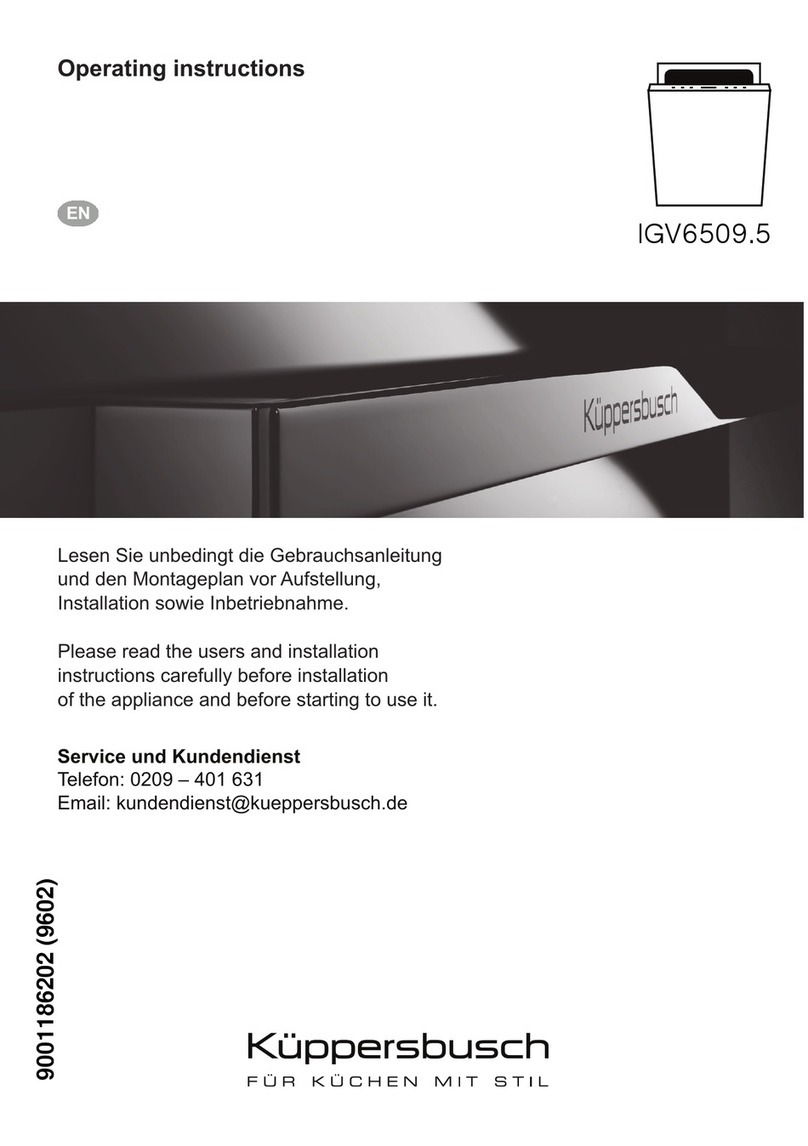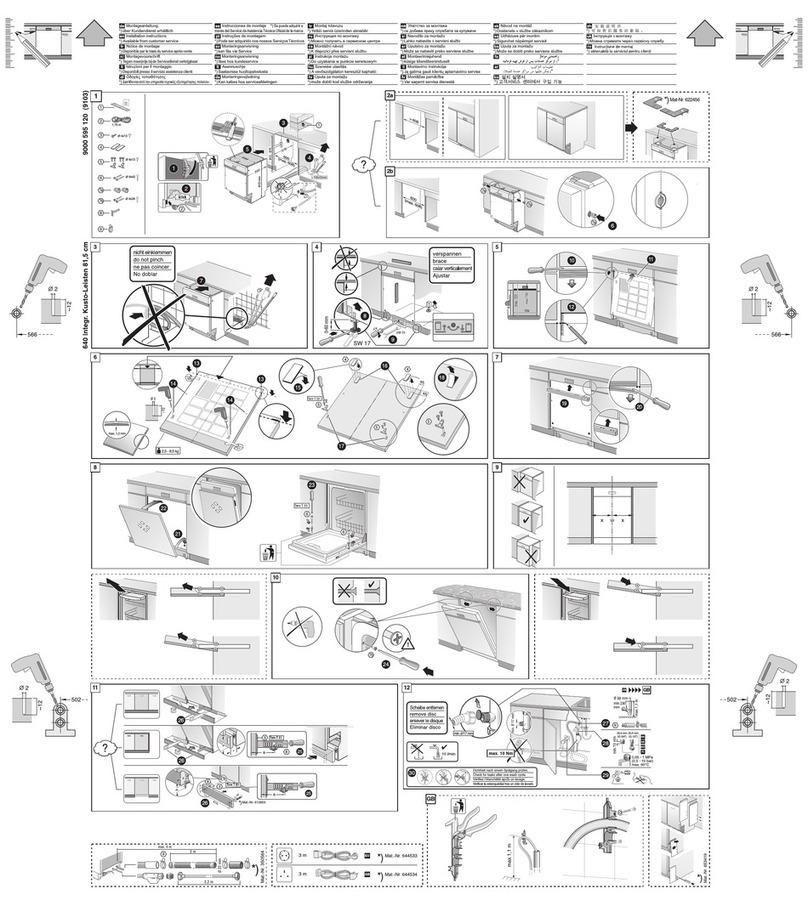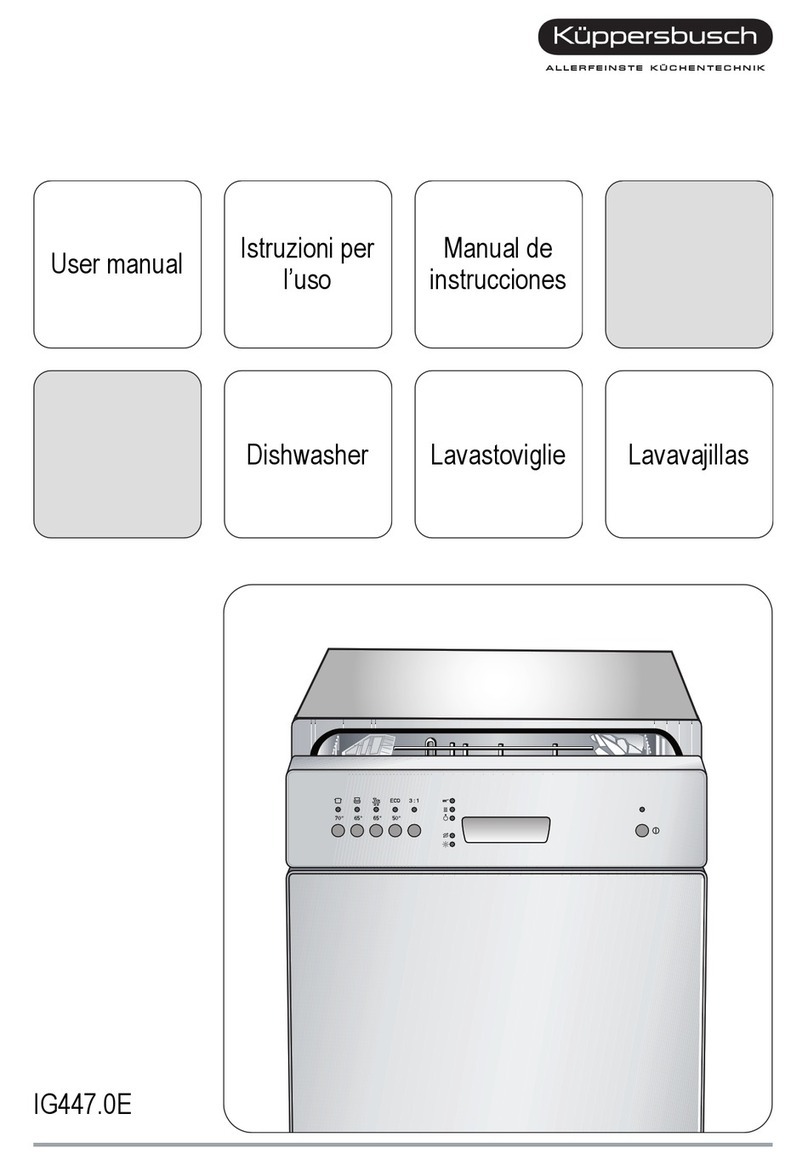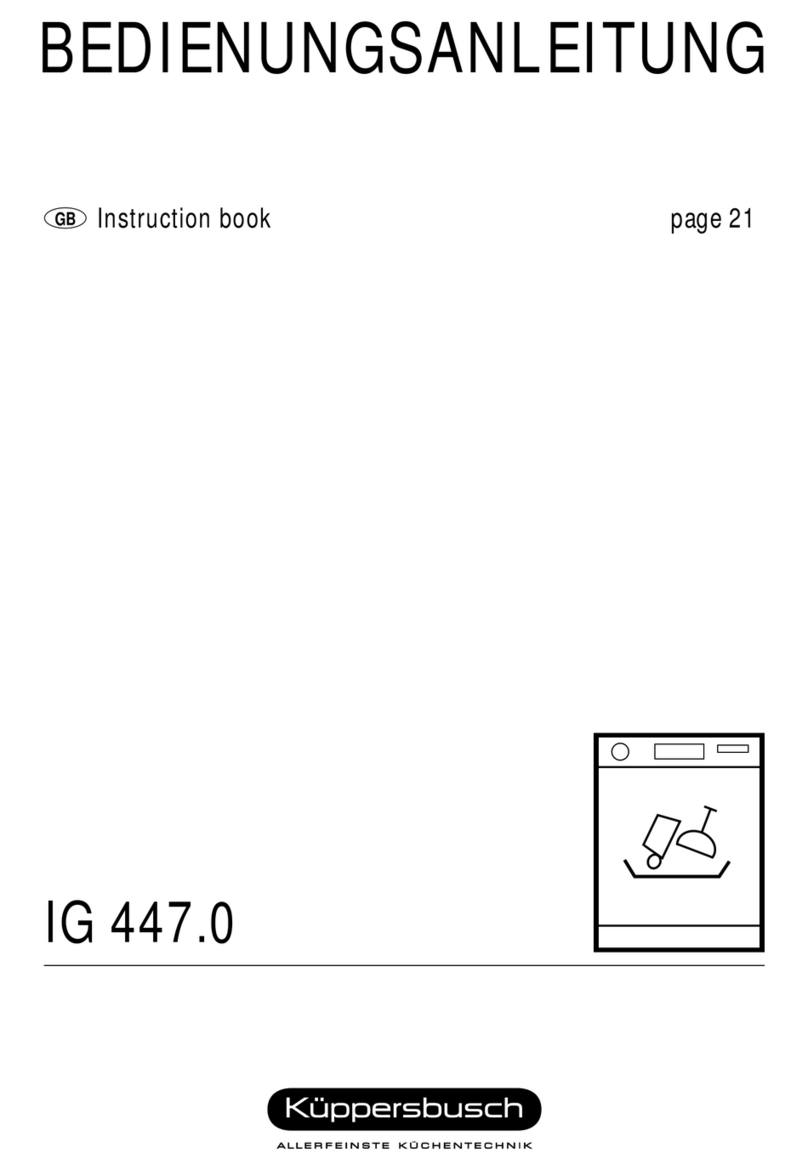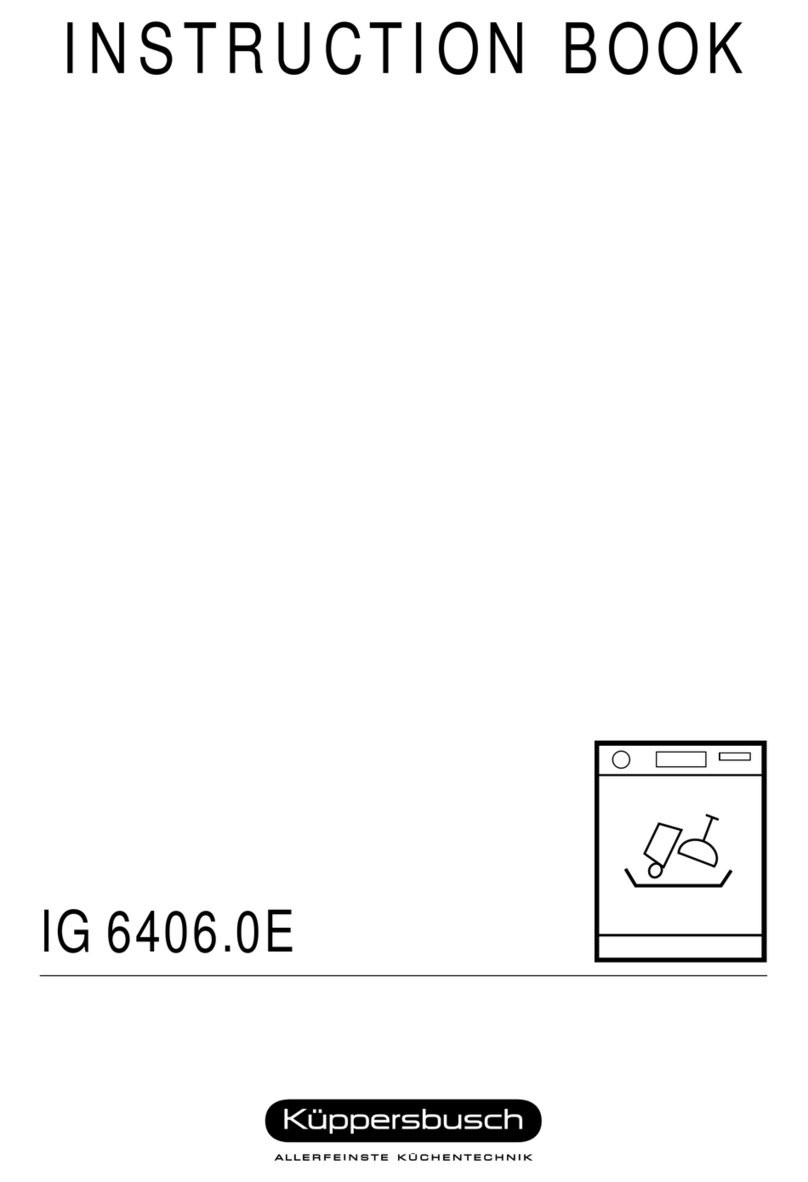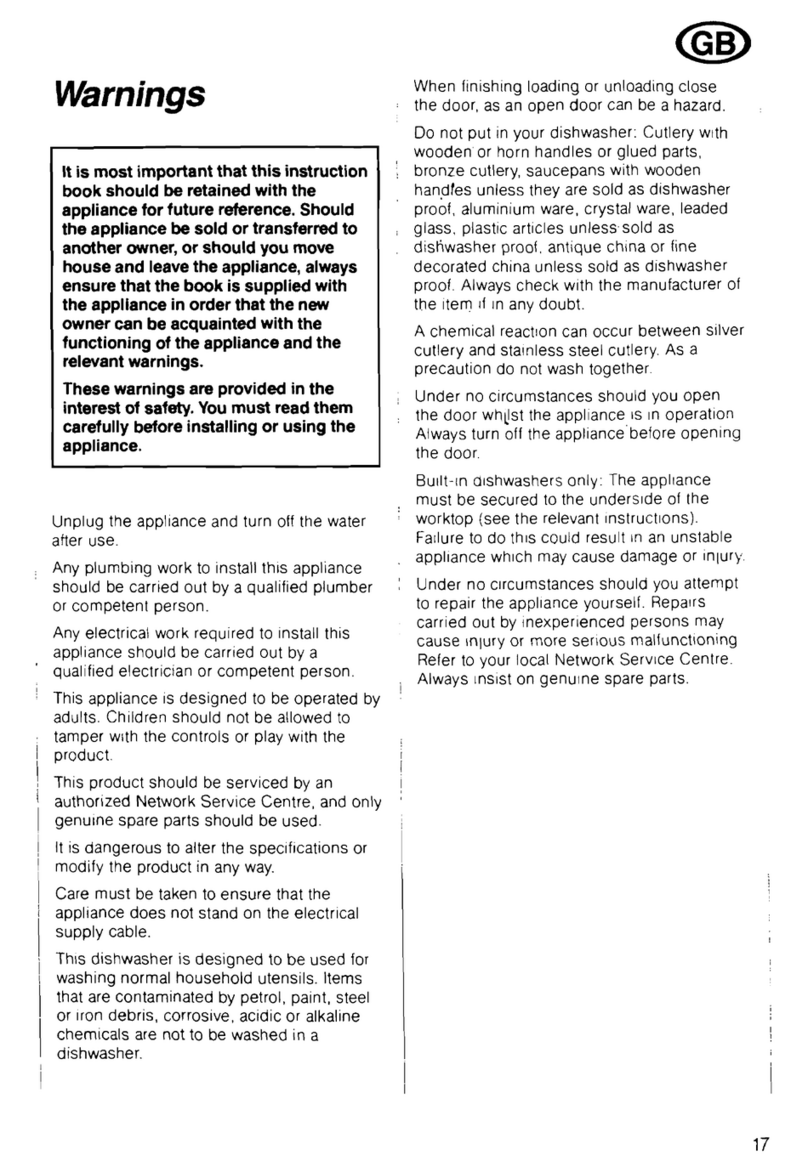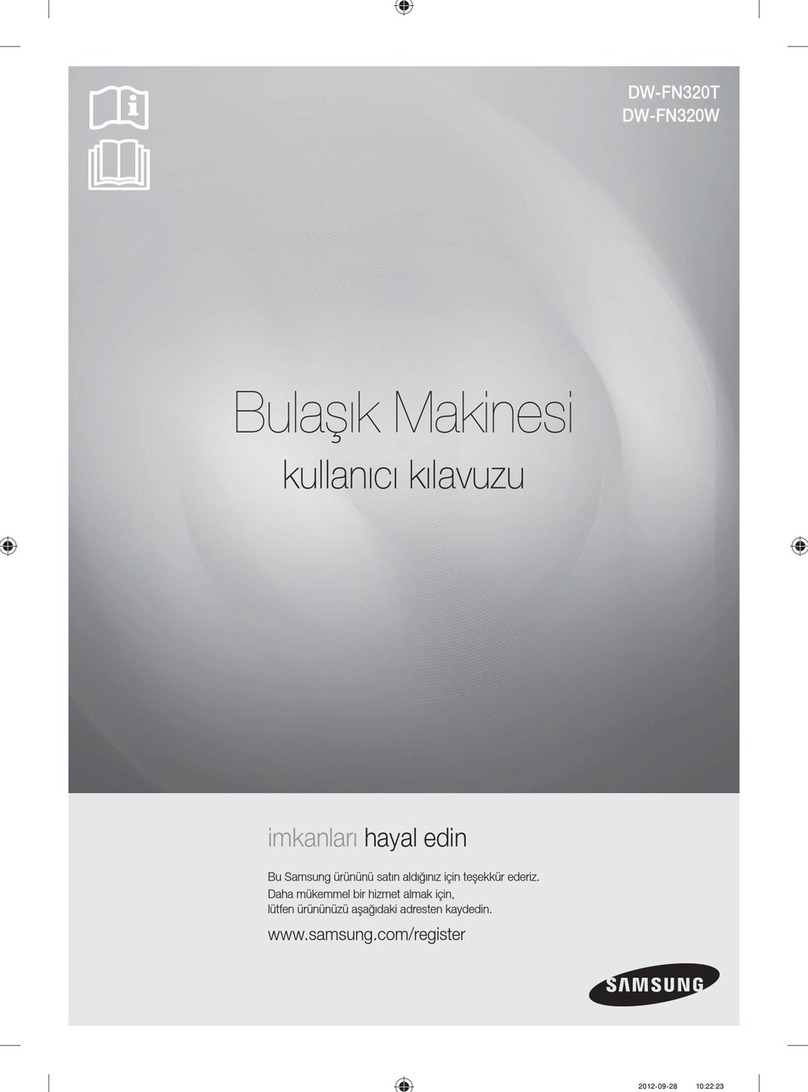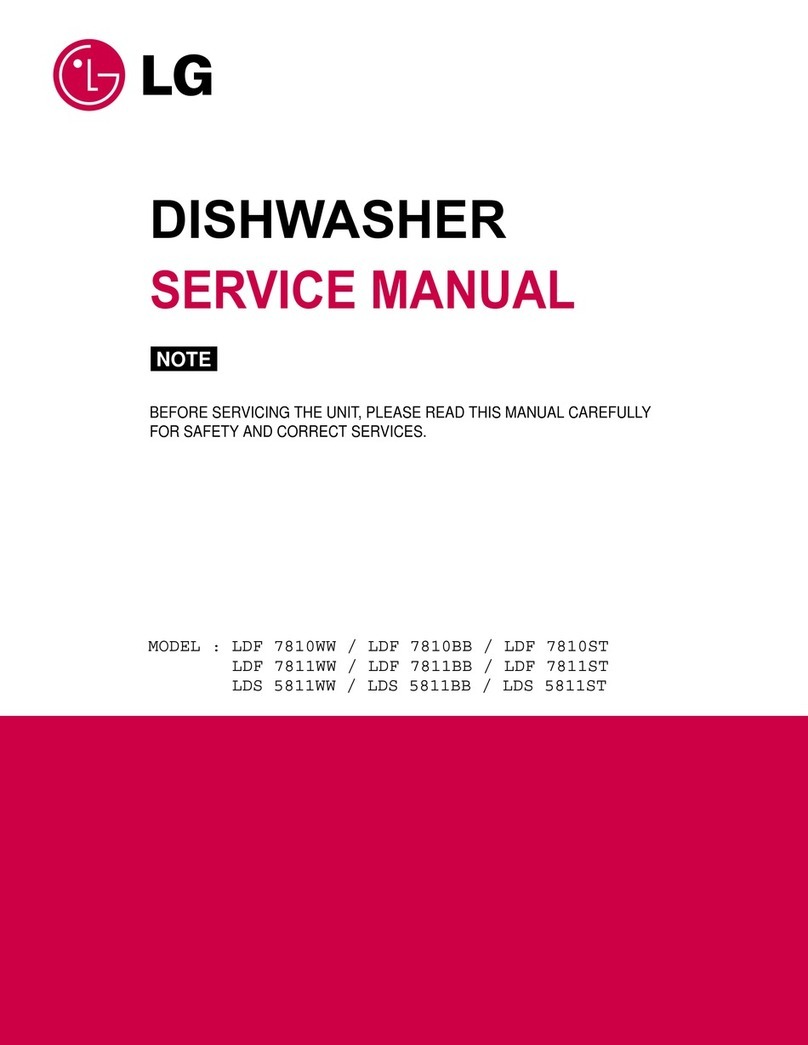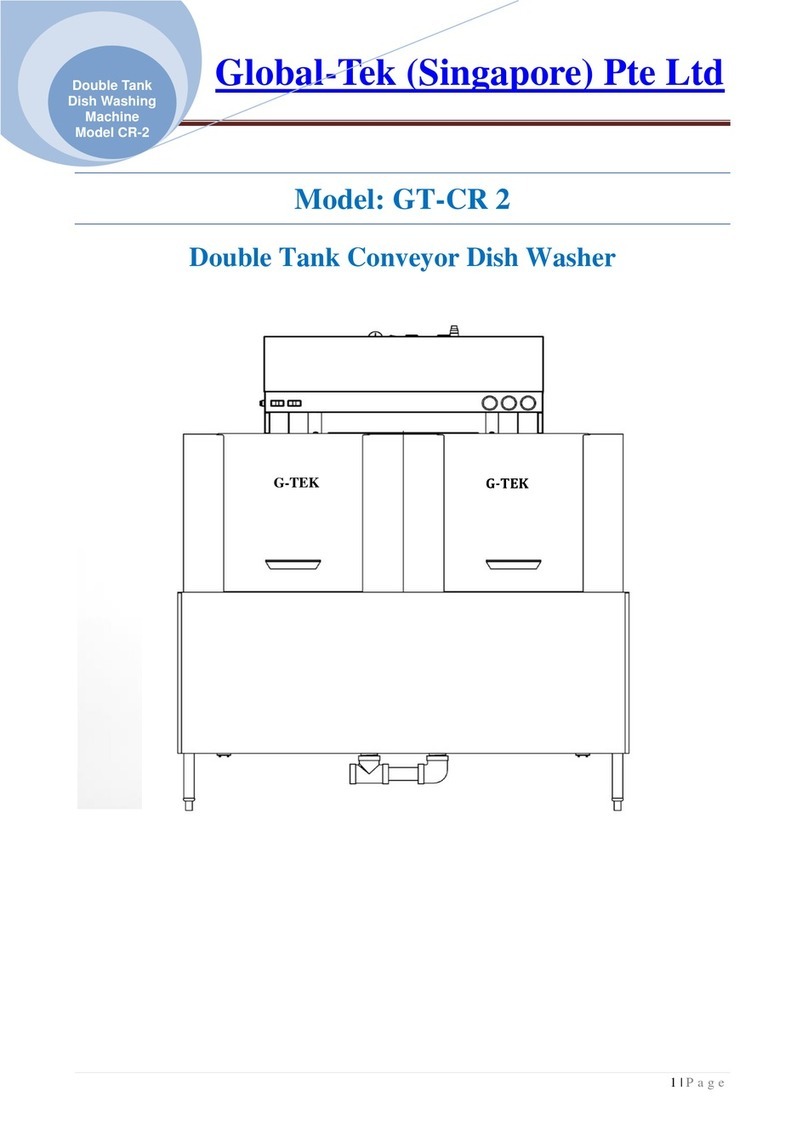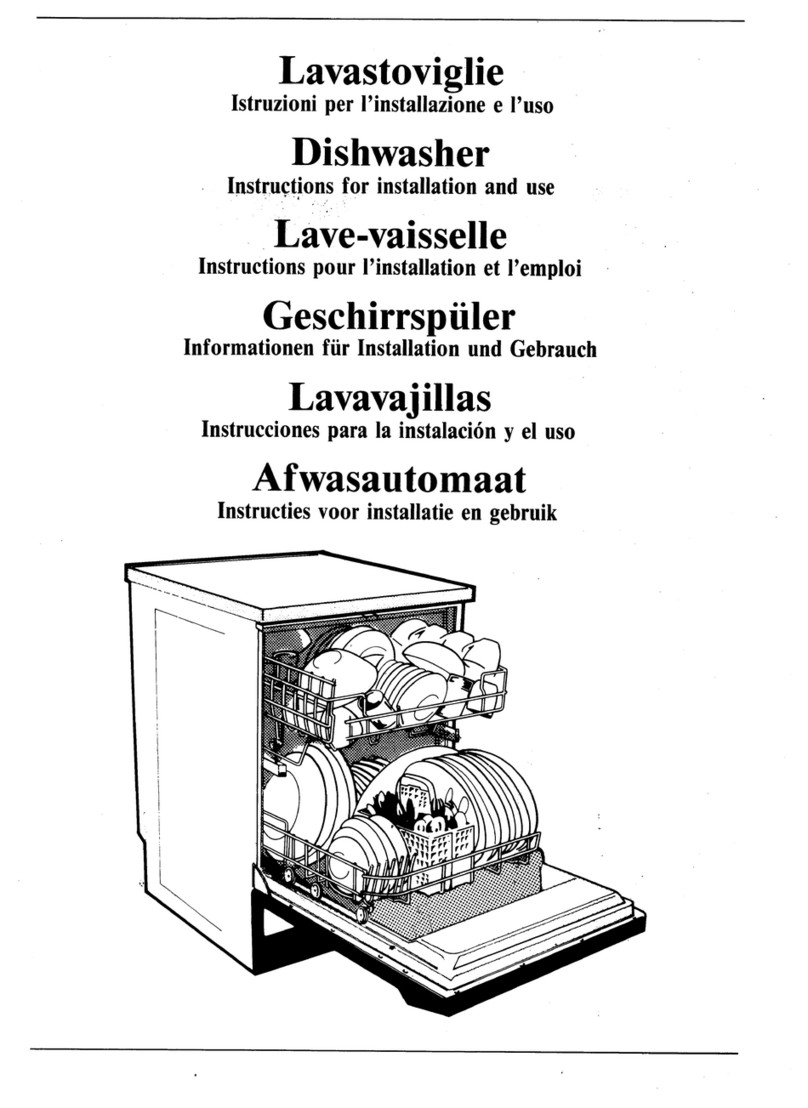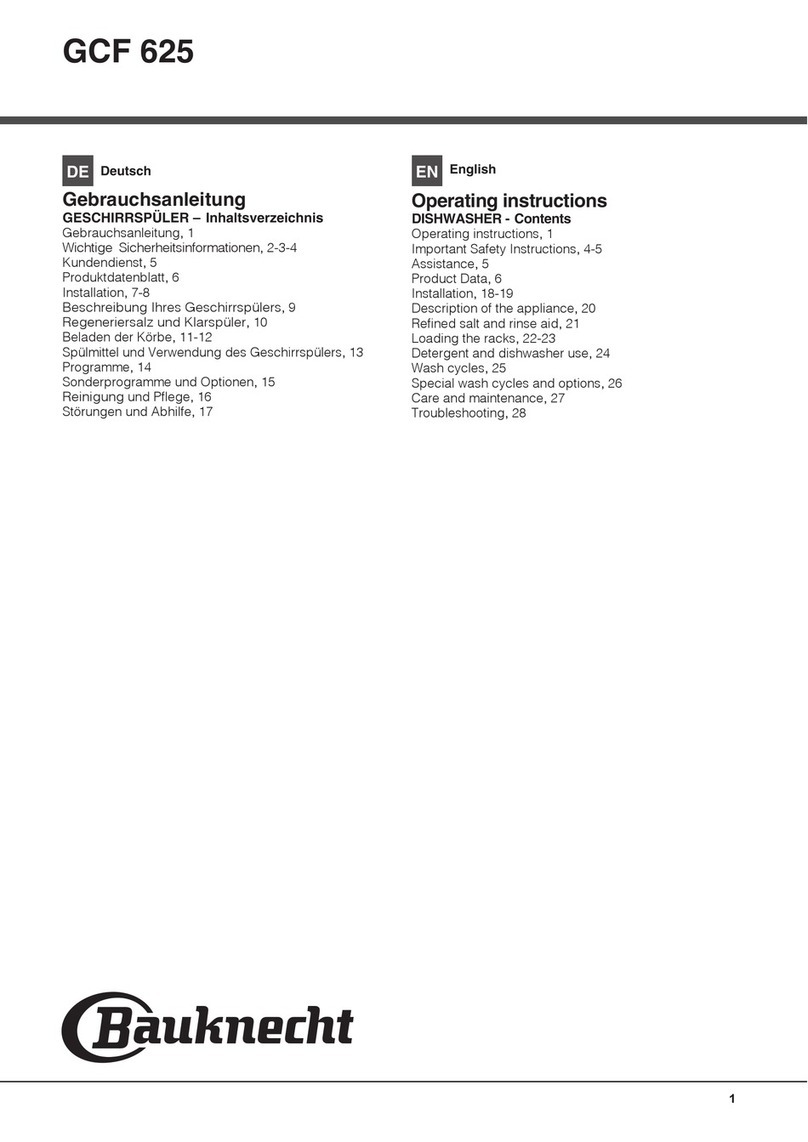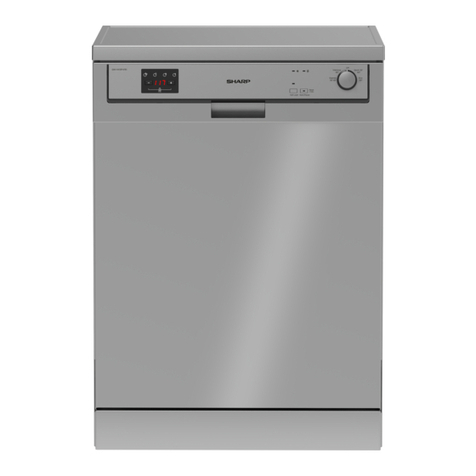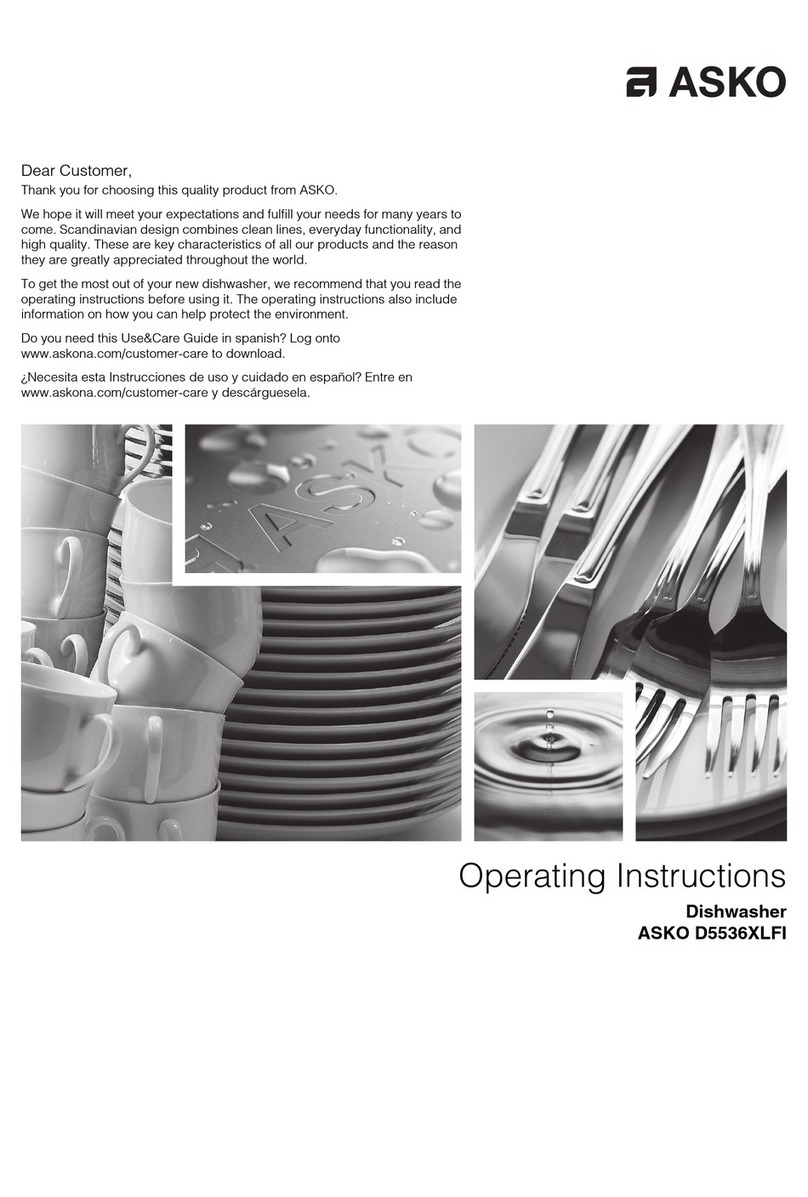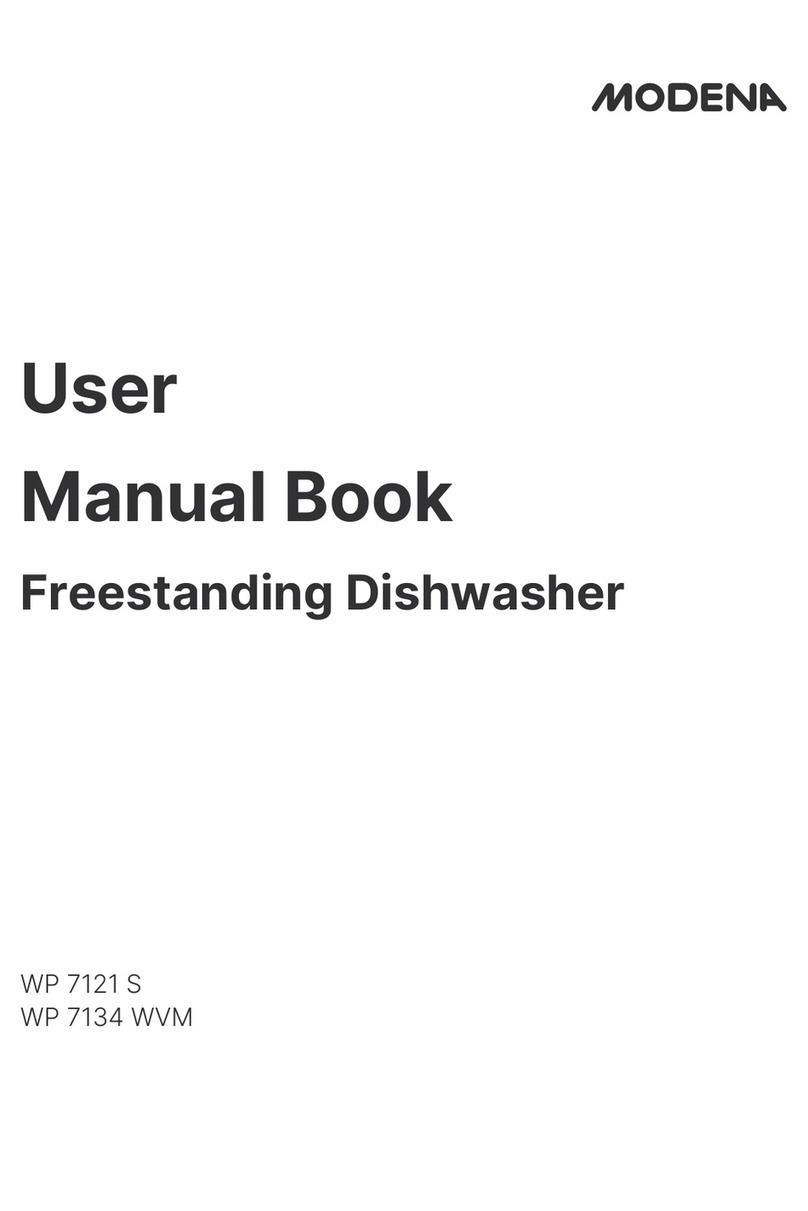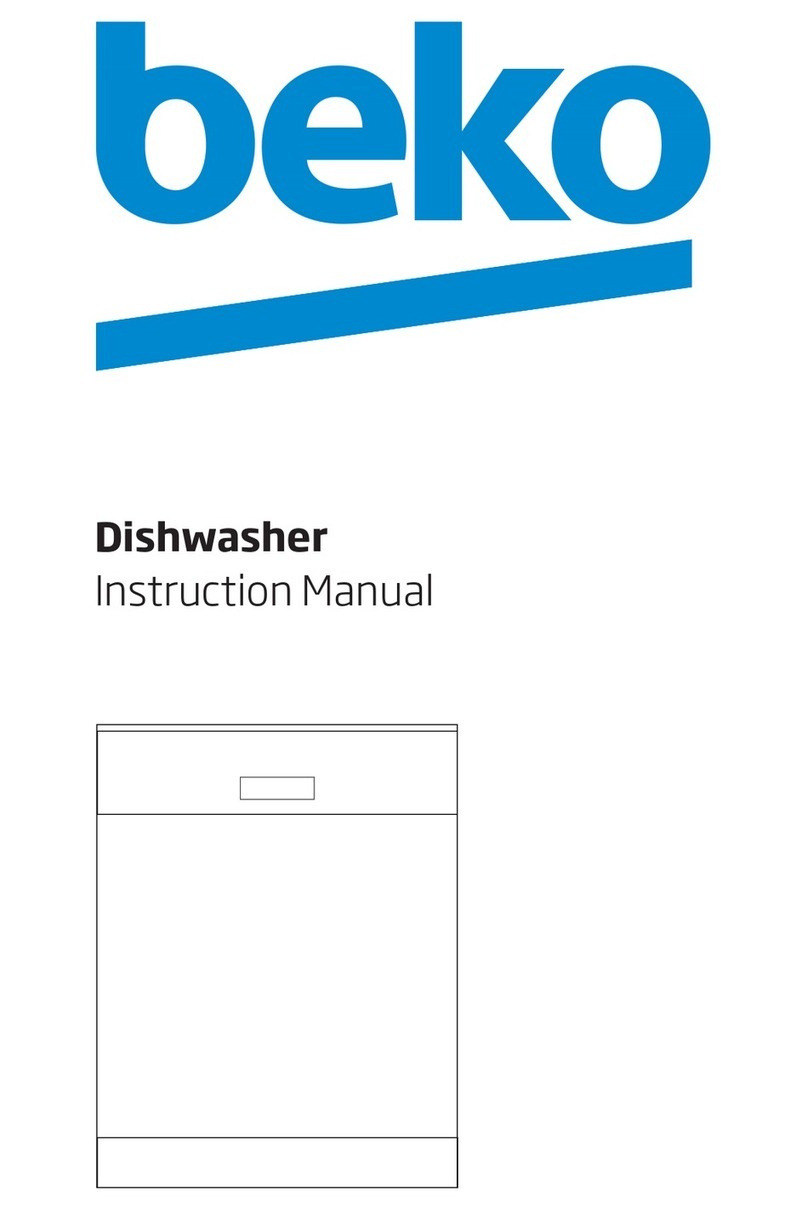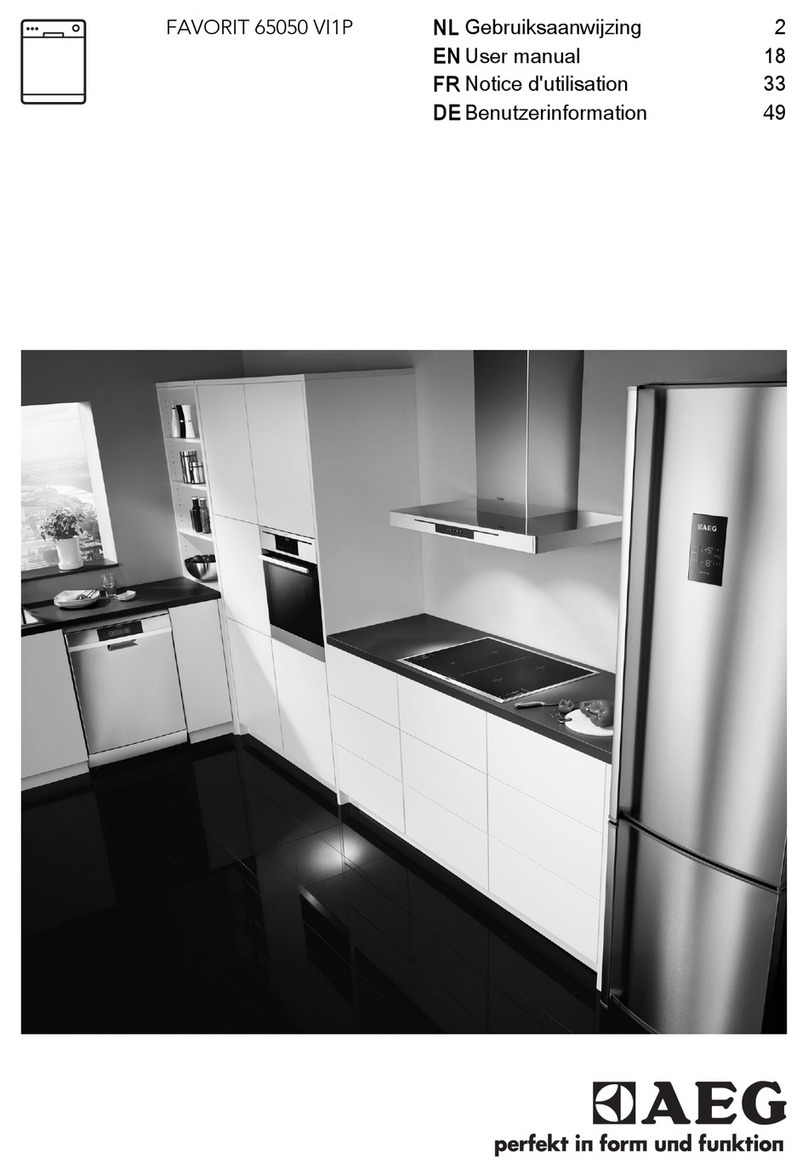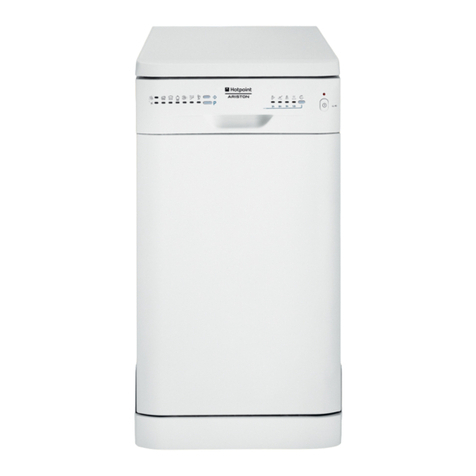21
●Check if it’s necessary to refill with special salt or rinse aid
●Load cutlery and dishes into the dishwasher.
●Fill with dishwasher detergent .
●Select a wash programme suitable for the cutlery and
dishes.
●Start the wash programme.
Lo ding cutlery nd dishes
Sponges, household cloths nd ny object th t c n
bsorb w ter m y not be w shed in the dishw sher.
●efore loading the dishes, you should:
- Remove large left-overs.
- Soften remnants of burnt food in pans
●When loading the dishes and cutlery, please note:
- Dishes and cutlery must not impede the rotation of the
spray arms .
- Load hollow items such as cups, glasses, pans, etc. with
the opening downwards so that water cannot collect in the
container or a deep base.
- Dishes and items of cutlery must not lie inside one
another, or cover each other.
- To avoid damage to glasses, they must not touch.
- Lay small objects in the cutlery basket.
Open the door and slide out the baskets to load the dishes.
The lower b sket
The lower basket is designed to take saucepans, lids, plates,
salad bowls, cutlery etc.
Serving dishes and large lids should be arranged around the
edge of the basket, ensuring that the upper spray arm can turn
freely.
The cutlery b sket
Long bl ded knives stored in n upright position re
potenti l h z rd.
Long nd/or sh rp items of cutlery such s c rving knives
must be positioned horizont lly in the upper b sket.
T ke c re when lo ding or unlo ding sh rp items such s
knives.
Cutlery should be placed in the removable cutlery basket with
the handles facing downwards. If the handles protrude from
the bottom of the basket, obstructing the lower spray arm, load
the cutlery with the handles facing upwards.
Mix spoons with other cutlery to prevent them from sticking
together.
Arrange spoons, dessert
spoons, teaspoons, knives
and other small items of
cutlery in the rack on the side
of the cutlery basket.
In d ily use
For w shing in the dishw sher the following cutlery/dishes
re of limited suit bility:
- Only wash stoneware in the dishwasher if it is specifically
marked as being dishwasher-safe by the manufacturer.
- Glazed patterns may fade if machine washed frequently
- Silver and aluminium parts have a tendency to discolour
during washing. Left-overs, e.g. egg white, egg yolk and
mustard often cause discolouring and staining on silver.
Therefore always clean left-overs from silver immediately, if
it is not to be washed straight after use.
- Some types of glass can become dull after a large number
of washes
re not suit ble:
- Cutlery with wooden, horn, china or
mother-of-pearl handles
- Plastic items that are not heat resistant
- Older cutlery with glued parts that is not
temperature resistant
- onded cutlery items or dishes
- Pewter or copper items
- Lead crystal glass
- Steel items subject to rusting
- Wooden platters
- Items made from synthetic fibres


